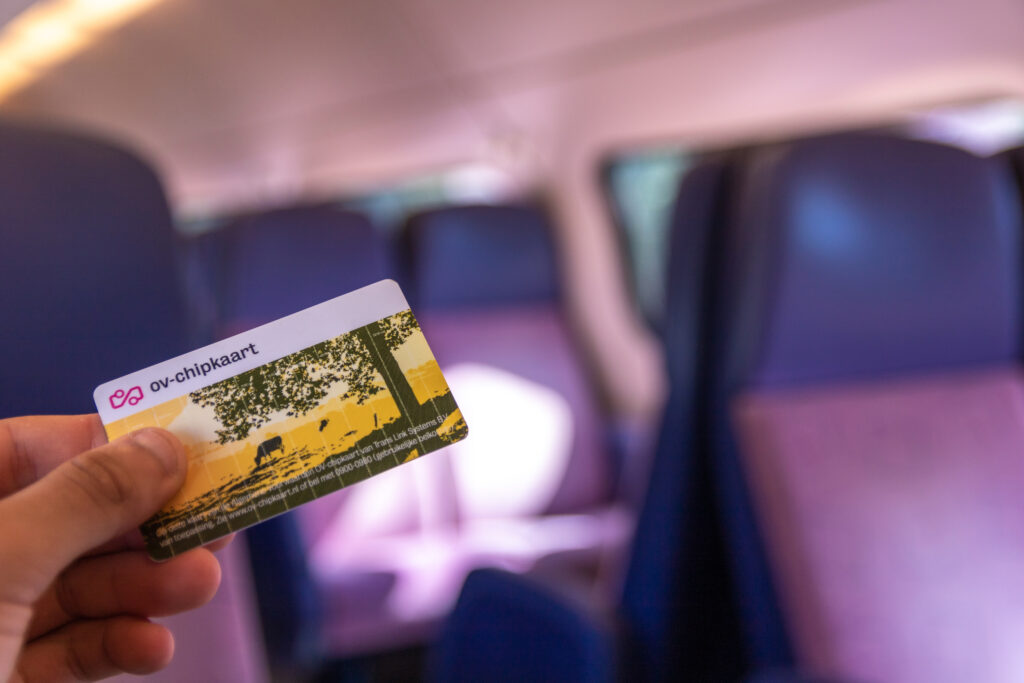Living in a foreign country is exciting, but amidst this emotion, many internationals make financial mistakes that could easily be avoided.
From using the wrong bank account to losing money on unnecessary expenses, here are nine common financial mistakes expats make in the Netherlands.
1. Missing out on government allowances
Many internationals in the Netherlands aren’t aware that the Dutch government offers various allowances (toeslagen) to help residents manage living costs.
Expats who meet the income requirements can apply for:
- Huurtoeslag (rent allowance)
- Zorgtoeslag (healthcare allowance)
- Kinderopvangtoeslag (childcare allowance)
Those expats who do know about these benefits often don’t look into them — be it because they don’t realise they could qualify for them or because the application process seems intimidating.
However, missing out on government allowances could cost you hundreds of euros each month. So, check your eligibility!
2. Using a foreign bank account for too long
While your foreign bank account might still work in the Netherlands, using it is not always the most practical.
Not only could a Dutch bank account be required for things like paying your rent, receiving your salary, and getting a Dutch phone number, but a foreign account could also lead to high transaction fees or payment issues.
The solution? Getting a Dutch bank account! Many banks let new customers open an account online, so avoiding these issues and making daily financial transactions smoother has never been easier.
Our top financial tip for expats in the Netherlands? Find a bank that truly understands what it’s like to build a life in a new country. ING makes everyday banking simple, stress-free, and tailored to the needs of internationals — from low fees and helpful budgeting tools to a user-friendly experience that just makes sense.
3. Paying unnecessary wealth tax
Did you know you might be paying more wealth tax (vermogensbelasting) than necessary? Wealth tax in the Netherlands is the tax you pay based on your savings and investments — even if you haven’t actually earned much from them.
While Dutch wealth tax is relatively low compared to other countries, once your assets exceed the tax-free threshold, you’ll have to pay tax in box 3 of the income tax system.

Instead of taxing your actual income, the Belastingdienst assumes you earn a certain return on your assets each year. The higher your assets, the higher the assumed return — and the more tax you pay.
That’s why it’s smart to regularly review your finances and see if there are ways to reduce what you owe. There are some smart ways to do this. For example:
- Invest in a pension product: Depending on your income, you can invest a certain amount of money into your so-called jaarruimte each year, tax-free.
- Take advantage of tax relief on green investments: You can put up to €26,312 (€52,624 for tax partners) tax-free into green investments.
- Gift money to your children: You can reduce your taxable assets by giving your children a tax-free gift of up to €6,713 annually, or up to €32,195 for a specific purpose, such as a house purchase.
4. Tipping when it’s not necessary
In the Netherlands, tipping is appreciated but not expected. While rounding up the bill at a restaurant is common, no one expects you to leave a 20% tip (we’re looking at you, Americans).
Not only do internationals often tip excessively at restaurants, but they also tip at places where it’s not customary to tip in the Netherlands at all, such as the hairdresser or the nail salon.

Of course, your tip is always appreciated — but remember that nobody would hold it against you if you didn’t tip. Remember, unnecessary tipping can add unnecessary expenses, so this is an easy way to save some money.
5. Being over-insured
Being insured is important, but being over-insured is an easily avoidable financial mistake.
Many internationals end up with overlapping insurance policies, such as health insurance, travel insurance, and liability insurance.
While it might seem like more coverage means better protection, it often just means you’re paying double for the same protection.
For example, if your health insurance already covers emergency medical expenses abroad, getting additional travel insurance for the same coverage might be unnecessary.
To avoid this, review your existing coverage before signing up for new policies, or simply check with your insurance provider.
Being over-insured will cost you, but you don’t want to be under-insured either. Our tip? Keep all your insurances in one place with ING, and ensure you’re covered for what matters without paying extra.
6. Staying uninformed about Dutch pension options
Failing to build a Dutch pension can be a costly mistake, even if you don’t want to think about it right now. This is especially important for internationals who plan on staying in the Netherlands long-term.
In the Netherlands, the pension system is made up of three pillars:
- State pension (AOW): Provided by the government but only fully available to those who have lived and worked in the Netherlands for 50 years before retirement.
- Employer pension schemes: Many Dutch employers offer pension contributions, but participation and benefits vary by industry and employer.
- Private pensions and investments: Expats who don’t qualify for a full AOW or an employer pension can supplement their retirement savings with private pension plans or investment accounts.
Many expats don’t think about pension planning much or assume they’ll eventually rely on their home country’s pension system. However, it’s important to build your pension without gaps as much as possible to ensure financial security in retirement.
7. Skipping the GP (and going straight to a specialist)
Navigating the Dutch healthcare system can be tricky, and many expats don’t take the time to properly deal with it until it’s too late.
Between long waiting lists at general practitioners (GPs) and their less-than-ideal reputation, internationals often decide to skip the GP and go straight to a specialist when dealing with a health issue.

Does this cut the waiting time? Sure, but it also costs you money.
You see, the only way to get your specialist treatment covered by health insurance in the Netherlands is if you’ve been referred by a GP. If you decide, for example, to seek out a dermatologist before first consulting your GP, then you’ll be paying out of your own pocket.
Getting your Dutch GP to refer you to another doctor can be difficult, but it’s worth fighting for if you want to save some money.
8. Refusing to hop on a bike
Riding a bike on a crowded Dutch bike lane can be scary — especially for those of us who, unlike the local kids, didn’t learn to bike before we could walk.
But here’s the thing: public transport in the Netherlands is expensive, and relying only on trains, trams, buses and metros is a costly affair.
READ MORE | 17 reasons why biking is king in the Netherlands
Sure, getting a car is an option, but for most people it’s not really necessary in the Netherlands (and also costs a lot of money).
So, what’s the solution? Take a deep breath and hop on that fiets. Trust me, it’s a lot of fun — and your wallet will thank you.
9. Not getting a public transport subscription
Even if you are a bike enthusiast, there will inevitably be times when you’ll have to make use of public transport.

When that happens, it’s highly advisable that you get an NS abonnement — a subscription for your public transport travel.
While the NS offers many different options here, the most profitable for most of us is their NS Flex Dal Voordeel. This subscription gives you a 40% discount in off-peak hours, on holidays, and on weekends, for just €5.95 per month.
Pensions, bank accounts, benefits — navigating finances in a foreign country can be overwhelming.
But hey, now that you know the nine most common financial mistakes of expats in the Netherlands, you know what to look out for!
Can you think of any more financial mistakes you made in the Netherlands? Share them in the comments and help others out!
